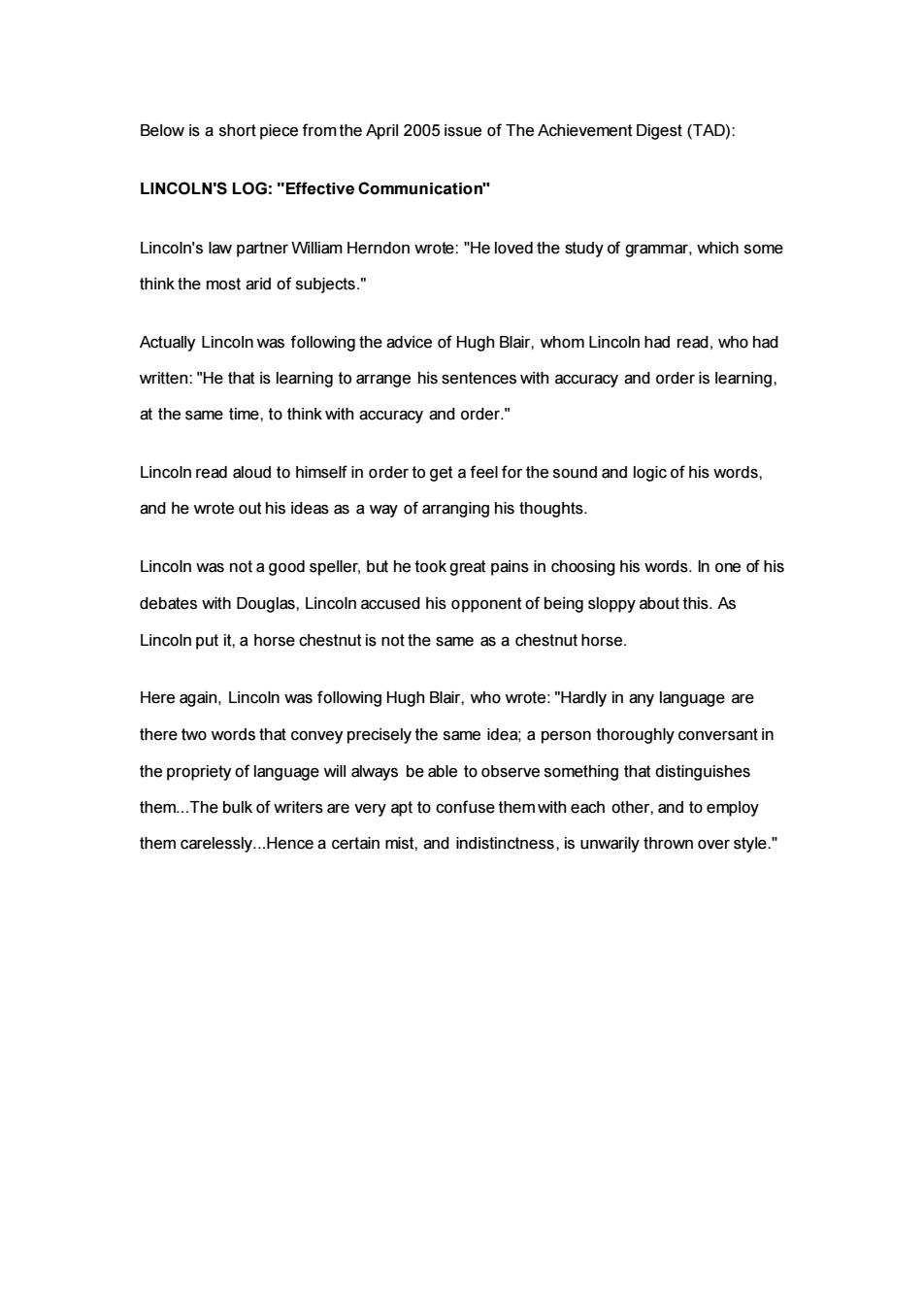
Below is a short piece from the April 2005 issue of The Achievement Digest(TAD): LINCOLN'S LOG:"Effective Communication" Lincoln's law partner William Herndon wrote:"He loved the study of grammar,which some think the most arid of subjects." Actually Lincoln was following the advice of Hugh Blair,whom Lincoln had read,who had written:"He that is learning to arrange his sentences with accuracy and order is learning, at the same time,to think with accuracy and order." Lincoln read aloud to himself in order to get a feel for the sound and logic of his words, and he wrote out his ideas as a way of arranging his thoughts. Lincoln was not a good speller,but he took great pains in choosing his words.In one of his debates with Douglas,Lincoln accused his opponent of being sloppy about this.As Lincoln put it,a horse chestnut is not the same as a chestnut horse. Here again,Lincoln was following Hugh Blair,who wrote:"Hardly in any language are there two words that convey precisely the same idea;a person thoroughly conversant in the propriety of language will always be able to observe something that distinguishes them...The bulk of writers are very apt to confuse them with each other,and to employ them carelessly...Hence a certain mist,and indistinctness,is unwarily thrown over style
Below is a short piece from the April 2005 issue of The Achievement Digest (TAD): LINCOLN'S LOG: "Effective Communication" Lincoln's law partner William Herndon wrote: "He loved the study of grammar, which some think the most arid of subjects." Actually Lincoln was following the advice of Hugh Blair, whom Lincoln had read, who had written: "He that is learning to arrange his sentences with accuracy and order is learning, at the same time, to think with accuracy and order." Lincoln read aloud to himself in order to get a feel for the sound and logic of his words, and he wrote out his ideas as a way of arranging his thoughts. Lincoln was not a good speller, but he took great pains in choosing his words. In one of his debates with Douglas, Lincoln accused his opponent of being sloppy about this. As Lincoln put it, a horse chestnut is not the same as a chestnut horse. Here again, Lincoln was following Hugh Blair, who wrote: "Hardly in any language are there two words that convey precisely the same idea; a person thoroughly conversant in the propriety of language will always be able to observe something that distinguishes them...The bulk of writers are very apt to confuse them with each other, and to employ them carelessly...Hence a certain mist, and indistinctness, is unwarily thrown over style